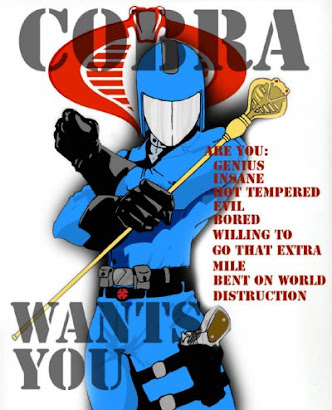American terrorist convicted of committing the largest act of terrorism on American soil on 4/19/1995. The ammonium nitrate bombing of the Alfred P. Murrah federal building claimed 168 victims between the ages of four months old to 73 years old. McVeigh's stubborn refusal to express any remorse has tormented the families of his victims. His psychiatrist feels that he was committed to the ideal that he must object to a federal government that had become excessively oppressive and deceitful. In Smith's opinion, McVeigh is not mentally ill, because he does not suffer from any "cognitive defects or psychiatric illnesses." He was able to rationally make the decision to bomb the building and "fully understood the consequences," Smith said. "He had an underlying depression, but he was not anti-social." "It became easier to act because he had nothing," Smith said. "He needed an enemy. This whole project was his antidepressant. He intellectualizes to avoid emotion, to avoid pain." Empathy was not part of his agenda.
McVeigh grew up in Pendleton, a small upstate New York town. He had a happy childhood swimming in his family's pool, hiking and playing with the neighborhood kids. He enjoyed organizing casino games for local kids on the block. His father and mother divorced when he was ten-years-old. He grew closer to his dad, helping him cultivate his vegetable garden. His mom moved to Florida with his younger sister Jennifer, and she married a coast guard. With a normal and healthy pattern, in Starpoint High School, McVeigh participated in track and field and was a member of the honor society. He worked at a local fast food chain and dated high school girlfriends. In his senior year, he grew interested in computers. After graduation in 1986, he enrolled in the local business college, but soon became bored with his computer classes. In 1987, he moved to Buffalo, New York and took a job as a security guard.
Looking for excitement, he signed up for the U.S. Army on 5/24/1988. McVeigh took to military life and the comradeship with his fellow troops at Fort Benning, Georgia, becoming a straight-arrow soldier. He was promoted to corporal and then to sergeant. During the Persian Gulf War, McVeigh was sent to Iraq as a gunner on a Bradley fighting vehicle. On returning to the States, he sensed a major shift in the U.S. Army. The post-cold-war army downsizing changed his life as he watched his companions leave military service. In March 1991, he dropped out of the Special Forces qualification course at Fort Bragg, North Carolina. Allowing himself to get out of shape cut his chances for reaching the upper echelon of military duty. Discharged from the army, McVeigh tried to adjust to civilian life.
In 1993, he arrived in Waco to watch the standoff between the Branch Davidians and federal agents. He wandered around the country as a militant drifter visiting guns shows and selling guns and ammunition from his car.
His political views became more racist and far-right as he kept company with political militia groups harboring anger against the U.S. government. On 4/19/1994, McVeigh returned to Waco and declared himself a "non resident alien." He claimed the U.S. Army had implanted a computer chip in his derriere during his active duty. In 1993 and early 1994, McVeigh spent time with his army buddy, Terry Nichols. The two were intrigued by making homemade bombs and setting them off on a Michigan farm. McVeigh never went out without his black semiautomatic gun jammed into the back of his pants.
On 4/19/1995, at 9:02 AM CDT*, a bomb of massive carnage and destruction exploded at the Alfred P. Murrah Federal Building in Oklahoma City, OK. The building was the main office for the federal agents who were involved in the Waco Branch Davidian standoff in Waco, TX. Two hours after the bombing, McVeigh was stopped by a policeman for a traffic violation 70 miles from Oklahoma City. McVeigh was almost released until the police recognized him as one of the possible suspects in the terrorist act. Upon interrogation, he implicated the Nichols brothers, James Douglas (born 4/03/1954) and Terry Lynn (born 4/01/1955).
McVeigh was found guilty on 5/29/1997 for conspiracy to use a weapon of mass destruction, use of a weapon of mass destruction, destruction by explosive, and eight counts of first degree murder. On 6/13/1997, he was sentenced to death.
On 12/28/2000 McVeigh requested U.S. District Judge Richard Matsch, who presided over his trial, to let him drop all of his appeals of the death sentence and set a date for his execution. The judge complied and scheduled a date for his execution by lethal injection on 5/16/2001.
The world's largest retailer, Wal-Mart, will not sell "American Terrorist: Timothy McVeigh and the Oklahoma City Bombing," a controversial new book (April 2001) in which the unrepentant convicted bomber refers to his child victims as "collateral damage," in any of its 1,724 stores.
In a startling twist, it was revealed in early May that all the documentation of evidence had not been disclosed, leading to a stay of execution. On 5/31/2001, Timothy McVeigh asked for a stay of execution and immediately the Justice Department denied his lawyers' assertion that the government still has failed to provide documents relating to the Oklahoma City bombing investigation.
McVeigh faced his execution by lethal chemical injection on 6/11/2001, 7:00 AM EST, United States Penitentiary, Terre Haute, Indiana, 87W25, 39N28. News reports stated that he died at 7:14 AM local time, about 10 minutes after the execution began.

